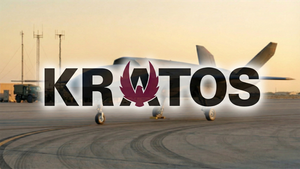White paper notes temporary relief to fiber broadband ecosystem supply chain challenges, provides multiple strategies to alleviate bottlenecks
The Fiber Broadband Association (FBA) today announced updates to its recently-published Fiber Broadband Supply Chain white paper, noting significant improvements in industry supply chain lead times. The FBA’s Supply Chain Working Group published the paper in September 2022, and recently discovered new data that shows up to 92% faster lead times in some fiber broadband equipment categories.
“This latest supply chain information is encouraging for fiber broadband providers today that are building reliable, high-speed fiber broadband networks to connect their communities and close the digital equity gap,” said Gary Bolton, President and CEO of the Fiber Broadband Association. “However, our Supply Chain Working Group does caution that while it is reporting current relief in the supply chain, it expects to see an uptick in demand going forward. Therefore, it encourages companies to continue to put a hard focus on long-range planning and to follow FBA mitigation strategies presented in the white paper.”
FBA’s updated Supply Chain white paper, titled “Strategies to Mitigate Bottlenecks in the Current Fiber Broadband Supply Chain,” helps companies carefully plan to overcome supply chain challenges and build more robust systems and processes to buffer them from future challenges and keep fiber projects on target. The paper provides vital statistics on fiber broadband supply chain fluctuations and examples of how to protect fiber-related projects from the negative effects of supply chain stressors.
The latest data shows improved lead times in several key fiber broadband component categories:
- 92% decrease in minimum lead times for fiber optic cables (from 52-60 weeks in Summer 2022 to 4-10 weeks as of March 2023)
- 60% decrease in minimum lead times for fiber cabinets and splitters (from 10-20 weeks in Summer 2022 to 4-8 weeks as of March 2023)
- 80% decrease in minimum lead times for fiber multiport terminals (from 20-35 weeks in Summer 2022 to 4-8 weeks as of March 2023)
- 80% decrease in minimum lead times for conduit (from 15-20 weeks in Summer 2022 to 3-7 weeks as of March 2023)
- 64% decrease in minimum lead times for hand holes (from 22-26 weeks in Summer 2022 to 8-14 weeks as of March 2023)
- 67% decrease in minimum lead times for home equipment (from 12-24 weeks in Summer 2022 to 4-10 weeks as of March 2023)
“Our supply chain white paper serves as an important resource for FBA members to mitigate supply chain challenges and accelerate fiber broadband deployments, so it is crucial that we provide the most up-to-date information and strategies,” said Scott Jackson, National Broadband Market Manager at Graybar, Fiber Broadband Association Board Member and Chair of the Supply Chain Working Group. “Beyond statistics, it also provides recommendations on how to pursue stronger partnerships, long-range planning, high-level design optimization, changing how companies recruit and train their labor force, and smarter technology options to plan and maintain stocking levels.”
FBA will present a webinar to review the updates to the “Strategies to Mitigate Bottlenecks in the Current Fiber Broadband Supply Chain” white paper on May 9, at 11:00am EDT. Registration information can be found here.
About the Fiber Broadband Association
The Fiber Broadband Association is the largest and only trade association that represents the complete fiber ecosystem of service providers, manufacturers, industry experts, and deployment specialists dedicated to the advancement of fiber broadband deployment and the pursuit of a world where communications are limitless, advancing quality of life and digital equity anywhere and everywhere. The Fiber Broadband Association helps providers, communities, and policy makers make informed decisions about how, where, and why to build better fiber broadband networks. Since 2001, these companies, organizations, and members have worked with communities and consumers in mind to build the critical infrastructure that provides the economic and societal benefits that only fiber can deliver. The Fiber Broadband Association is part of the Fibre Council Global Alliance, which is a platform of six global FTTH Councils in North America, LATAM, Europe, MEA, APAC, and South Africa. Learn more at fiberbroadband.org.
View source version on businesswire.com: https://www.businesswire.com/news/home/20230502005032/en/
Contacts
Ashley Schulte
Connect2 Communications for the Fiber Broadband Association
FBA@connect2comm.com





